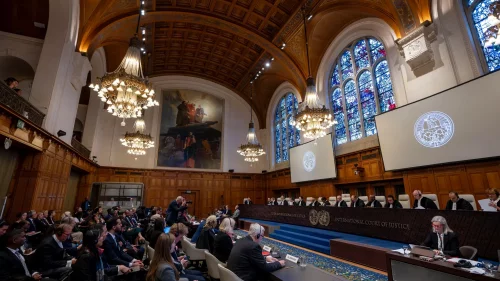Scientists from the Society for the Protection of Underground Networks (SPUN) have launched a project to map and preserve the planet's underground fungal networks to combat climate change.
Fungi can slow the rate at which carbon is returned from forest soils to the atmosphere, helping forests retain carbon in trees and soils for longer, reports The European Sting.
Scientists from Boston University, USA, note that fungi play a crucial role in helping forests absorb carbon and combat the potential effects of climate change.
A giant underground network of forest-dwelling fungi has become known as the "Wood Wide Web," but very little is known about it and its role in combating climate change. Scientists believe that mycorrhizal fungi are one of the largest untapped areas of climate science.
"Billions of tons of carbon dioxide flow from plants into these fungal networks every year. These carbon fluxes help make soils the second largest sink of carbon after the oceans," says SPUN.
Deforestation creates almost as many greenhouse gas emissions as global automobile transportation. According to the UN, about 12 million hectares are destroyed every year.
Mushroom networks are threatened by agricultural expansion, the use of chemical fertilizers and pesticides, deforestation, and urbanization. Also, they cannot survive without their partner plants.
“In 2012, we brought together more than 150 partners working in Latin America, West Africa, Central Africa, and Southeast Asia to create the Rainforest Alliance 2020, a global public-private partnership to promote investment in systemic change.” – it is stated in the material.
The alliance helps producers, traders and buyers of goods often accused of deforestation to create deforestation-free supply chains. They also fight deforestation associated with the production of oil, beef, soybeans and pulp and paper.
Myconaut experts are collecting thousands of samples to compile this global map of fungal networks. SPUN will use machine learning to create a picture of these networks and identify their roles as carbon sinks.
This mapping will be used to prioritize places that can store more carbon and survive extreme climate events.
"Better understanding of subsurface ecosystems is a major opportunity for biodiversity and climate initiatives," said SPUN board member Mark Tercek. – "Fungal networks underlie life on Earth. If trees are the lungs of the planet, fungal networks are the circulatory systems. These networks are largely unstudied, but remain one of the greatest untapped levers in science."
Mushrooms can also increase the efficiency of agriculture, because seeding the soil with a "friendly fungus" is considered a promising technology for sustainable agriculture. Thus, arbuscular mycorrhizal fungi can help increase soil fertility and reduce the level of CO2 in the atmosphere.
"The global map of fungal networks can give us all a more sustainable way into the future," the article emphasized.
We will remind a British company has developed a cheap technology carbon sequestration by algae.
As EcoPolitic previously reported, there is top unknown benefits of hemp to save the environment.





